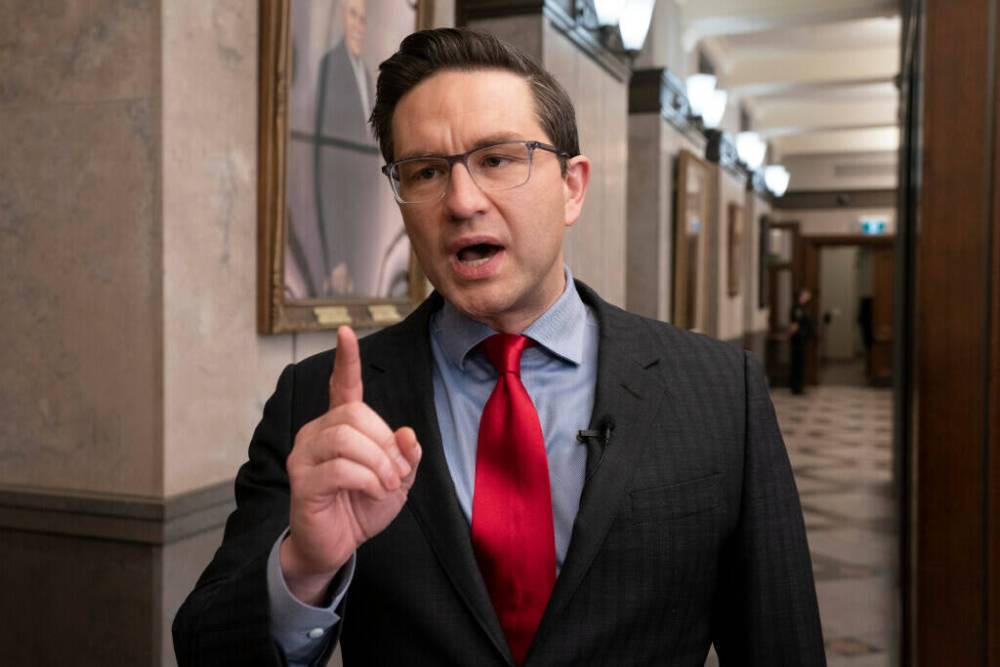An option for voters who aren’t extreme
Advertisement
Read this article for free:
or
Already have an account? Log in here »
To continue reading, please subscribe:
Monthly Digital Subscription
$0 for the first 4 weeks*
- Enjoy unlimited reading on winnipegfreepress.com
- Read the E-Edition, our digital replica newspaper
- Access News Break, our award-winning app
- Play interactive puzzles
*No charge for 4 weeks then price increases to the regular rate of $19.00 plus GST every four weeks. Offer available to new and qualified returning subscribers only. Cancel any time.
Monthly Digital Subscription
$4.75/week*
- Enjoy unlimited reading on winnipegfreepress.com
- Read the E-Edition, our digital replica newspaper
- Access News Break, our award-winning app
- Play interactive puzzles
*Billed as $19 plus GST every four weeks. Cancel any time.
To continue reading, please subscribe:
Add Free Press access to your Brandon Sun subscription for only an additional
$1 for the first 4 weeks*
*Your next subscription payment will increase by $1.00 and you will be charged $16.99 plus GST for four weeks. After four weeks, your payment will increase to $23.99 plus GST every four weeks.
Read unlimited articles for free today:
or
Already have an account? Log in here »
Hey there, time traveller!
This article was published 16/05/2023 (927 days ago), so information in it may no longer be current.
According to a public opinion poll conducted last month, 70 per cent of Canadians describe themselves as centrist (25), centre-left (29) or centre-right (16). The same poll found that 53 per cent of respondents feel Canadian politics is becoming more polarized and extreme, and a whopping 80 per cent of respondents are ready to vote for a different party than they’ve voted for before.
With numbers like that, it’s no surprise that 36 per cent of respondents said they would be interested in supporting a new centrist political party.
None of that should come as a shock to those who have been paying attention to Canadian (or even Manitoba) politics for the past few years. While the major parties increasingly pander to extreme elements on the outer edges of the political spectrum, moderate voters feel increasingly ignored and taken for granted.

(FILE)
Maybe it’s time for a choice for Canadians that isn’t Opposition Leader Pierre Poilievre, the NDP’s Jagmeet Singh or Prime Minister Justin Trudeau.
We see a Liberal Party that has largely abandoned rural Canadians and any serious commitment to fiscal responsibility. Even worse — and I say this as someone who was a “lifetime Liberal” and a former federal Liberal riding association president — today’s Liberal Party barely resembles the party of Lester Pearson, Pierre Trudeau and Jean Chrétien that I grew up in. Long-time Liberals and their moderate policy proposals are often treated with contempt by a party that has morphed into a New Democratic Party in all but name.
In other words, I didn’t leave the Liberal Party. It left me, my family and many of my friends.
When Erin O’Toole became leader of the Conservative Party, I thought he could transform his party into the socially-progressive, fiscally-responsible option that so many Canadian voters want. His hopes of becoming prime minister were sunk in the 2021 federal election, however, by the pro-gun and anti-abortion factions within his party. It ultimately cost him his job as party leader.
Now, with Pierre Poilievre as leader, the Conservative Party has become a shrill, cynical and mean-spirited imitation of Donald Trump’s Republican Party, dominated by gun nuts, anti-abortion zealots and anti-vaccine loons. I don’t want any part of a political party that opposes gay rights, reasonable gun control measures, abortion rights and realistic immigration targets. Neither do millions of other Canadians.
For years, the Liberal Party has harvested the votes of centrist voters like me by simply reminding us of the Conservative Party’s views on guns and abortion rights. Similarly, the Conservatives think they can convince us to vote for their candidates by stoking anti-Justin Trudeau anger, by pointing to the size of recent federal deficits, and by blowing their dog whistle on issues like gay rights and immigration policy.
In other words, neither party is really trying to win centrists’ votes. They are simply positioning themselves as the least-offensive option.
That’s the legacy of the binary-choice duopoly that has dominated Canada’s politics for more than a century. And it’s that duopoly that has enabled the Liberals and Conservatives to largely ignore moderate voters, and instead focus their campaign efforts on preventing the leakage of votes to fringe parties.
That tactical approach is driving the overheated polarization of our current politics. It helps explain why voter turnout for elections is plunging and why it is so difficult to convince good, qualified people to run as candidates. It increasingly threatens the stability and prosperity of our nation.
That’s a bleak picture, but a glimmer of hope emerged last week when the Centre Ice Canadians policy group announced they are considering the formation of a new centrist political party.
The group, which brands itself as “a bold voice for pragmatic, centrist Canadians,” was founded last year by former Conservative Party leadership candidate Rick Peterson and former New Brunswick cabinet minister Dominic Cardy. It has an advisory board composed of several prominent political players, including Peter Kent, Marjory LeBreton, Rick Anderson, Tasha Kheiriddin, and former B.C. premier Christy Clark.
In last week’s announcement, Peterson said “We’re interested in giving a voice to people, many of whom aren’t aligned with the federal Conservatives, federal Liberals or the federal NDP” and that the group will decide by September 20 if it will become an official party.
Millions of Canadians, weary of the toxic status quo and open to other options, eagerly await that answer.
Deveryn Ross is a political commentator living in Brandon.
deverynrossletters@gmail.com Twitter: @deverynross




